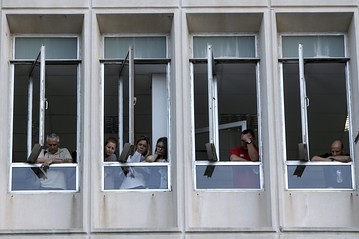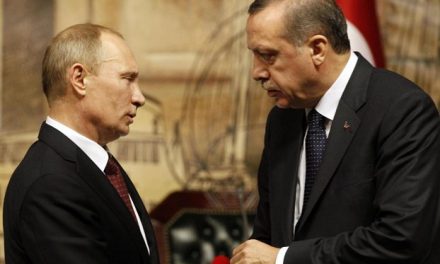By Phillipa Leighton-Jones, The Wall Street Journal
It all looked so different a month ago. Back then, we wrote that Greece’s recovery, while not much underway, certainly looked to be getting started. After highs of 36.58% in 2011, the yield on the Greek 10-year fell to 8.15% on May 15.
Just as the bond yields were coming down and people started using the words Greece and recovery in the same sentence, the Athens stock market played ball too, rising to a high of 1159.97 on May 20.
Even a downgrade to emerging markets status from MSCI earlier this month looked like it would be positive for the country’s stock markets, with more companies eligible to be included in a high weighting in the index.
“It is very likely that a number of companies would actually enter the index, which would make it a much broader and more representative index,” Remy Briand, managing director and global head of MSCI index research, said in a conference call at the time.
So good was the going that Greek officials and business executives descended on New York earlier this month in a bid to convince investors that it’s safe to get back into their battered economy. There were enthusiasts who said they could see a clear path to recovery, but also others for whom memories of the Greek financial crisis were still too close.
Fast forward a few weeks. The price on Greek government bonds fell sharply Friday to their lowest level in two months as political uncertainty started to drag on investor sentiment.
Today, yields on the 10-year bonds rose to 11.34%, the highest since April. The price slumped to €52.45. And stocks? Well the market was down 27.8% since hitting its high on May 20. It ended the day down 6.1% with heavy selling in Public Power CorpPPC.AT -7.54%(down 10%) Hellenic Petroleum ELPE.AT -8.31% (off 8.3%), OTE (down 6.4%), and OPAP OPAP.AT -5.22% (down 5.2%). Two of the corporate bonds that opened to strong interest among hedge funds in May were trading down.
It’s worth noting that volumes in Greek government bonds are thin, so any price fluctuations are pronounced. But at these prices, the bonds are not so far off the 45 cents in the euro that’s on offer from a secretive U.S. investment fund, Japonica Partners.Japonica wasn’t immediately available to comment to The Wall Street Journal today.
“I don’t think the market is currently trading on the Japonica offer,” said Colm McDonagh, head of emerging markets fixed income at Insight Investment, which currently manages just over £250 billion ($387.73 billion) in assets globally. “People need more clarity on what they’re trying to do.” Mr. McDonagh said Greek government bonds were getting close to a point where his fund would find them interesting again.
The wider macroeconomic picture looks uncertain.
Greece’s junior coalition government partner led by Fotis Kouvelistoday withdrew from the government’s cabinet, after a deadlock over the shutdown of the state broadcaster, a party member said Friday.
That was compounded by a report late Thursday that the IMF would suspend aid payments to Greece unless the euro zone stepped in to plug a potential financing gap. Today the IMF said it would continue to finance Greece beyond July as long as Greek authorities delivered on their program of fund raising quickly.
At the center of that question is the country’s privatization program, which suffered a debilitating setback last week when they country failed to attract a single bid for the sale of its natural-gas company Depa.
In an interview with The Wall Street Journal on Tuesday, Stelios Stavridis, head of Greece’s privatization agency, said the sale of the government’s 74% stake in the Port of Piraeus SA, tentatively planned for 2014, could be brought forward to this year, and could also include a 30- to 40-year management concession.
The sale of the national railroad is also a possibility, with hopes of interest from investors in China.
But since its first bailout loan in 2010, Greece has missed all its privatization targets. The aim was to have raised €2.6 billion this year, half of which would have come from the sale of Depa and sister company Desfa, a gas-grid operator. A €400 million bid for the latter by Azerbaijan’s state-run oil company Socar looks to be on track.
So far it’s only raised €900 million, most of which has come from a pending sale of the gambling monopoly OPAP.
Other privatizations that could be moved forward, according to Mr. Stavridis, include the main port in northern Greece, in Thessaloniki; a remaining 6% stake the state owns in Hellenic Telecommunications Organization; and its roughly one third stake in the country’s biggest oil refiner, Hellenic Petroleum.
– Sarah Krouse contributed to this post.



















